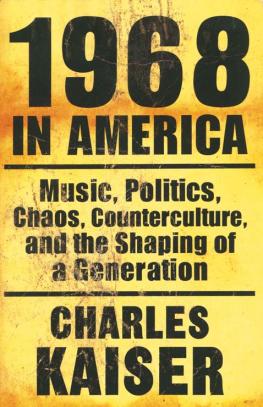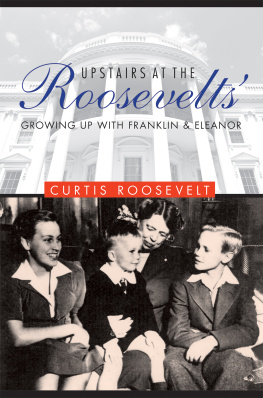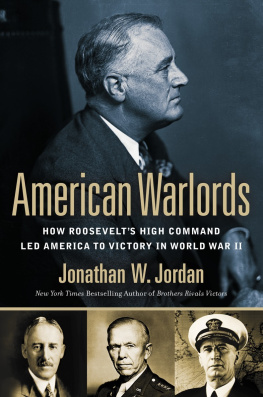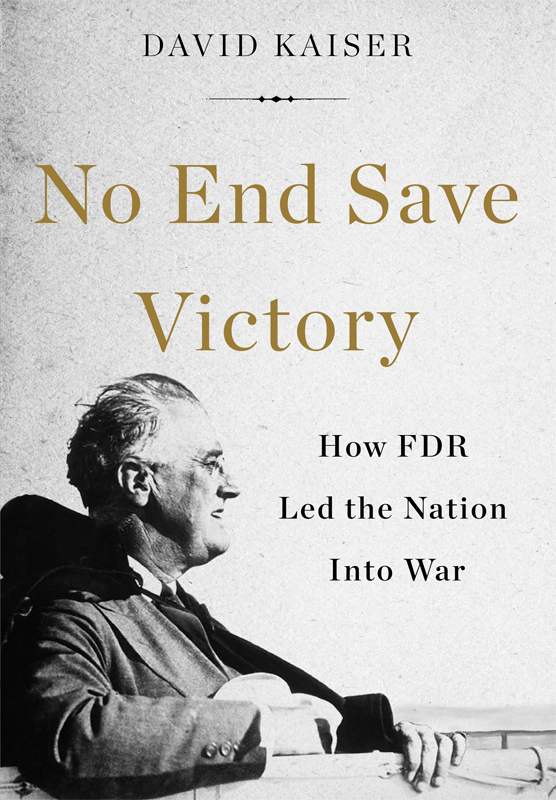No End Save Victory
BOOKS BY David Kaiser
Economic Diplomacy and the Origins of the Second World War (1980)
Postmortem: New Evidence in the Case of Sacco and Vanzetti (co-author William Young) (1985)
Politics and War: European Conflict from Philip II to Hitler (1990)
Epic Season: The 1948 American League Pennant Race (1998)
American Tragedy: Kennedy, Johnson, and the Origins of the Vietnam War (2000)
The Road to Dallas: The Assassination of John F. Kennedy (2008)
No End Save Victory
H OW FDR L ED THE N ATION INTO W AR
DAVID KAISER
BASIC BOOKS
A Member of the Perseus Books Group
New York
Copyright 2014 by David Kaiser
Published by Basic Books,
A Member of the Perseus Books Group
All rights reserved. Printed in the United States of America. No part of this book may be reproduced in any manner whatsoever without written permission except in the case of brief quotations embodied in critical articles and reviews. For information, address Basic Books, 250 W. 57th St, 15th floor, New York, NY 10107.
Books published by Basic Books are available at special discounts for bulk purchases in the United States by corporations, institutions, and other organizations. For more information, please contact the Special Markets Department at the Perseus Books Group, 2300 Chestnut Street, Suite 200, Philadelphia, PA 19103, or call (800) 810-4145, ext. 5000, or e-mail special.markets@perseusbooks.com.
A CIP catalog record for this book is available from the Library of Congress.
ISBN: 978-0-465-01982-3
ISBN (e-book): 978-0-465-06299-7
10 9 8 7 6 5 4 3 2 1
War is the realm of uncertainty; three quarters of the factors on which action in war is based are wrapped in a fog of greater or lesser uncertainty. A sensitive and discriminating judgment is called for; a skilled intelligence to scent out the truth.
Carl von Clausewitz, On War
There were giants in the earth in those days.
Genesis 6:4
CONTENTS
Introduction:
CHAPTER 1:
CHAPTER 2:
CHAPTER 3:
CHAPTER 4:
CHAPTER 5:
CHAPTER 6:
CHAPTER 7:
CHAPTER 8:
CHAPTER 9:
Epilogue:
INTRODUCTION
Four years later, after German victories in Europe that threatened the invasion and defeat of Great Britain, Roosevelt and the nation had to prepare to defend democracy actively by force. Thanks to FDR, the United States from May 1940 until December 1941 declared and prepared to meet an even greater objective: the total defeat of both Germany and its ally Japan. Although much of the nation and the U.S. Army and Navy would have been content simply to defend the western hemisphere, Roosevelt in the second half of 1941 insisted on planning for total victory, in order to make sure that democracy would not only survive, but prevail. His brilliant leadership crowned that effort with success.
Mankind must often revisit history in light of new experiences and new insights. In the last twenty years, a new perspective has allowed us to
The first great crisis of American and Western European life had taken place roughly from 1774 through 1803 and had turned above all on the clash between the Enlightenment doctrines of equality and the rights of man, on the one hand, and traditional authority on the other. That crisis had radically different results in different nations. In the United States it gave birth to modern democracy. In Britain, it led to the strengthening of older institutions such as the monarchy and the Church of England and to a severe setback for the lot of the common man. In much of continental Europe, it created authoritarian, bureaucratic governments whose citizens enjoyed equality before the law without any direct influence on their rulers. Slavery in the southern states was, of course, a feature of the new American republic, but one that the Constitution spoke of as little as possible (and never explicitly), and one that many of the Founders had hoped would disappear. When slavery first became a controversial national issue in 1820 on the occasion of the Missouri Compromise, the surviving
The Transcendental generation, the first American generation born under the Constitution (approximately 17921821), saw slavery and the future very differently. Southern Transcendentals lauded slavery as a positive good that needed to be expanded, while many northern Transcendentals identified it as a terrible evil that must be excised from the body politic like a cancer. Each rated the success of their cause, slavery or abolition, far more highly than the preservation of the Constitution or the Union. The issue of slavery grew in importance along with their own rise in power and influence. Even as a young man, Abraham Lincoln, the greatest of all Transcendentals, understood his generations historical role to an almost uncanny degree. He posed the problem in an address to the Springfield, Illinois, Lyceum in 1838, at the age of only twenty-eight, after recapitulating the achievements of the Founding Fathers. New men of ambition, he said, would now inevitably arise. And, when they do, they will as naturally seek the gratification of their ruling passion, as others have so done before them. The question then, is, can that gratification be found in supporting and maintaining an edifice that has been erected by others? Most certainly it cannot. Towering genius thirsts and burns for distinction; and, if possible, it will have it, whether at the expense of emancipating slaves, or enslaving freemen.
Twenty-three years later it fell to Lincoln to lead the Union in its attempt to preserve itself and to restrict and, later, to abolish slavery. From his first inaugural address onward he cast the struggle as an attempt to show that democratic government could survive against armed insurrectionand in so doing, he made the northern cause the cause of democrats across the Atlantic in Europe, where the elite generally favored their fellow aristocrats, the southerners. The Union victory had tremendous consequences in Europe. Only Italy in 1865 elected a legislature through universal male suffrage, but within two more years Germany did so as well, and Britain had broadened its franchise. France became a republic based on universal male suffrage in 1871. Political democracy was one of the main achievements of the nineteenth-century crisis of the Atlantic World.
Yet it was not the only one. In the United States the years following the Civil War unleashed powerful new economic forces, while political authority and civic spirit declined. The triumphant Republican Party stood not only for emancipation, but also for high tariffs, unregulated national banks, and frenzied railroad development. In the South, the white aristocracy spent the first two postwar decades restoring white supremacy through terror. Big city machines stole millions from the taxpayers, and public services were often disgracefully poor. Extremes of wealth and poverty had never been greater. Serious financial crises occurred at least once in every decade. The political climate reached new heights of anti-intellectualism.
Into this world came a new postwar generation, now known as the Missionary generation, born roughly from 1863 to 1884. Like the Transcendentals on the one hand and the postSecond World War Boom generation on the other, the Missionary generation grew up in rebellion against the world around them. In their case, however, that meant seeking to impose order on chaos, to bring a scientific spirit to public affairs, to provide a more decent life for all, and to restore some vitality to democracy. They wanted new institutions to increase human happinessinstitutions based, crucially, on a mixture of science and high moral purpose. In their twenties they, like the Boomers of the 1960s, produced an impressive cadre of young revolutionaries and agitating writers such as Emma Goldman, Upton Sinclair, the Wobblies or International Workers of the World, and Lincoln Steffens. If bad institutions and bad men can be got rid of only by killing them, then the killing must be done, wrote newspaper editor William Randolph Hearst not long before the assassination of President McKinley. Thousands of educated youth joined the settlement house movement, including such future stalwarts of the Franklin Roosevelt cabinet as Frances Perkins and Harold Ickes. The Missionaries also produced the first generation of black Americans unreservedly committed to racial equality, led by Harvard graduate W. E. B. Du Bois, and the shock troops of the womens suffrage movement. But as they reached their forties in the first decade of the twentieth century, many found a new home in the reform movements of the Progressive era.













